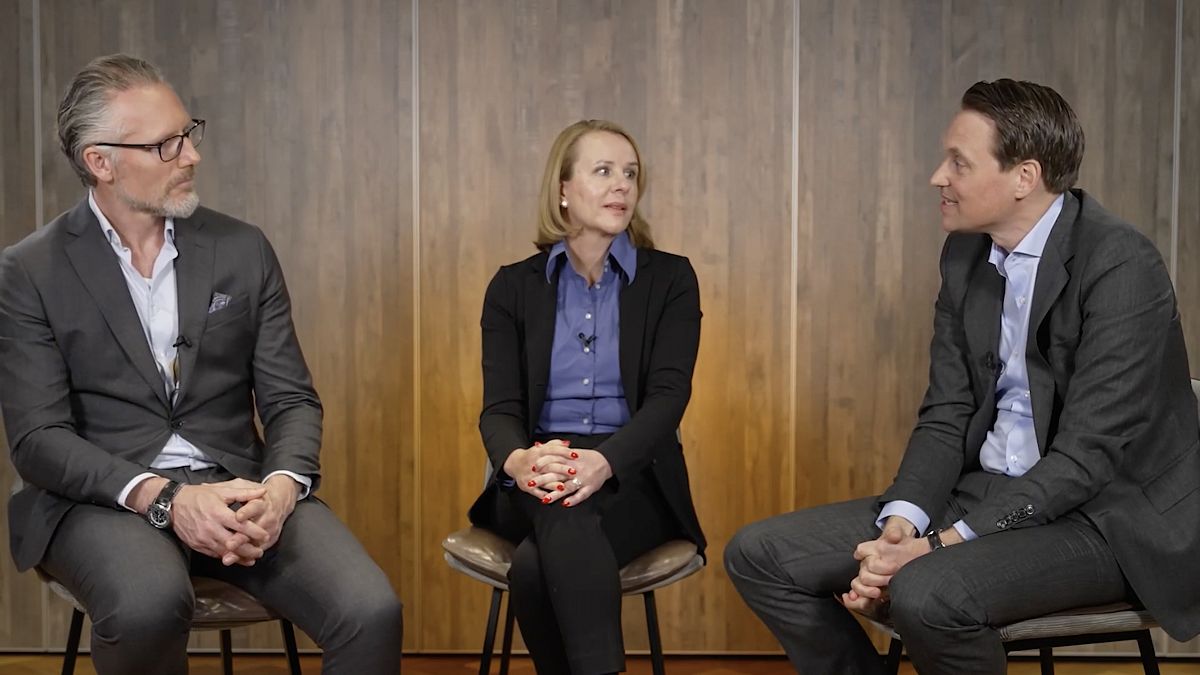Successful integration and scaling of exponential technologies such as artificial intelligence (AI) and automation is just as much about people as it is the technology, argues Rickard Wieselfors, Head of Automation and AI at Ericsson.
According to a recent student commissioned by Ericsson, 99 percent of the 2,000 senior leaders interviewed from different organisations said they faced challenges integrating AI and automation initiatives. Moreover, 87 percent of those respondents faced greater challenges relating to people and culture over technology or organisational challenges.
Wieselfors says there are many challenges and lessons to learn when integrating new technologies, regardless of the size, age, or industry of an enterprise.
Digital Business Motion vodcast
In this new Euronews Next SAP vodcast episode, Marika Auramo, Chief Operating Office of SAP (EMEA North) and Jesper Schleimann, Chief Strategy and Information Officer (EMEA North) sat down with Wieselfors to learn more about what it takes to integrate and scale technologies successfully, both from a technical and people perspective.
The Digital Business Motion series is a platform for leaders to candidly share their stories, failures, and successes about digital transformation and by doing so, help support the growing ecosystem of companies working toward Industry 4.0.
What will the vodcast cover?
Dispelling myths: While much has been said about automation wiping jobs and destroying livelihoods, this is largely a myth, argues Wieselfors. While machine technology will increase productivity by automating repetitive jobs, at the same time higher value jobs will continue to be created as a result of digital transformation.
Rather than worry about job security, it’s more important to become curious about technologies and how they may help you do your job. “It’s a continuous learning process - for all of us. The reality is technologies like machine learning and Blockchain will add incredible value to all our workplaces in different ways”.
Knowing your why: Pinpointing the business value you want to create by adopting transformative technologies is critical. Whether that is to streamline the customer experience or use AI to support decision-making related to supply chains, knowing what you’re trying to improve and how you will measure that is part of scaling technology successfully.
Identifying the business value, the company is trying to achieve will also help determine where to collect the data within the business. Whilst companies do not need to have perfect data to begin using AI, good data becomes an integral part of achieving the desired outcome.
Democratising technology: Sustaining the momentum and collective participation needed to undertake a company-wide transformation means all employees must understand their role and the benefits technology brings to their workload.
It is not just about data scientists and information technology (IT) teams. Democratising technology by making it accessible and relevant to every individual - technical and non-technical - helps to create confidence and build a culture of transformation.
In addition, Wieselfors stresses the importance of having any new technology, like AI, integrated with well-thought-out change management, governance, and education programs.
“This top down, bottom-up approach will help to drive adoption and ensure it sticks - it’s a critical part of successful scaling technology. Companies that thrive in 10-15 years’ time will have workforces that fully understand and benefit from exponential technologies, wherever they sit in the company.
“So, if you’re listening to this - the message I have is to begin the transformation journey or continue if you’re on it. It is happening all around, regardless of your industry”.
To watch the full conversation, click on the link above in the media player.
Be sure to follow Euronews Next and stay tuned for our next Vodcast coming up soon as we continue our journey with a view inside leading European enterprises and their digitalisation challenges.




